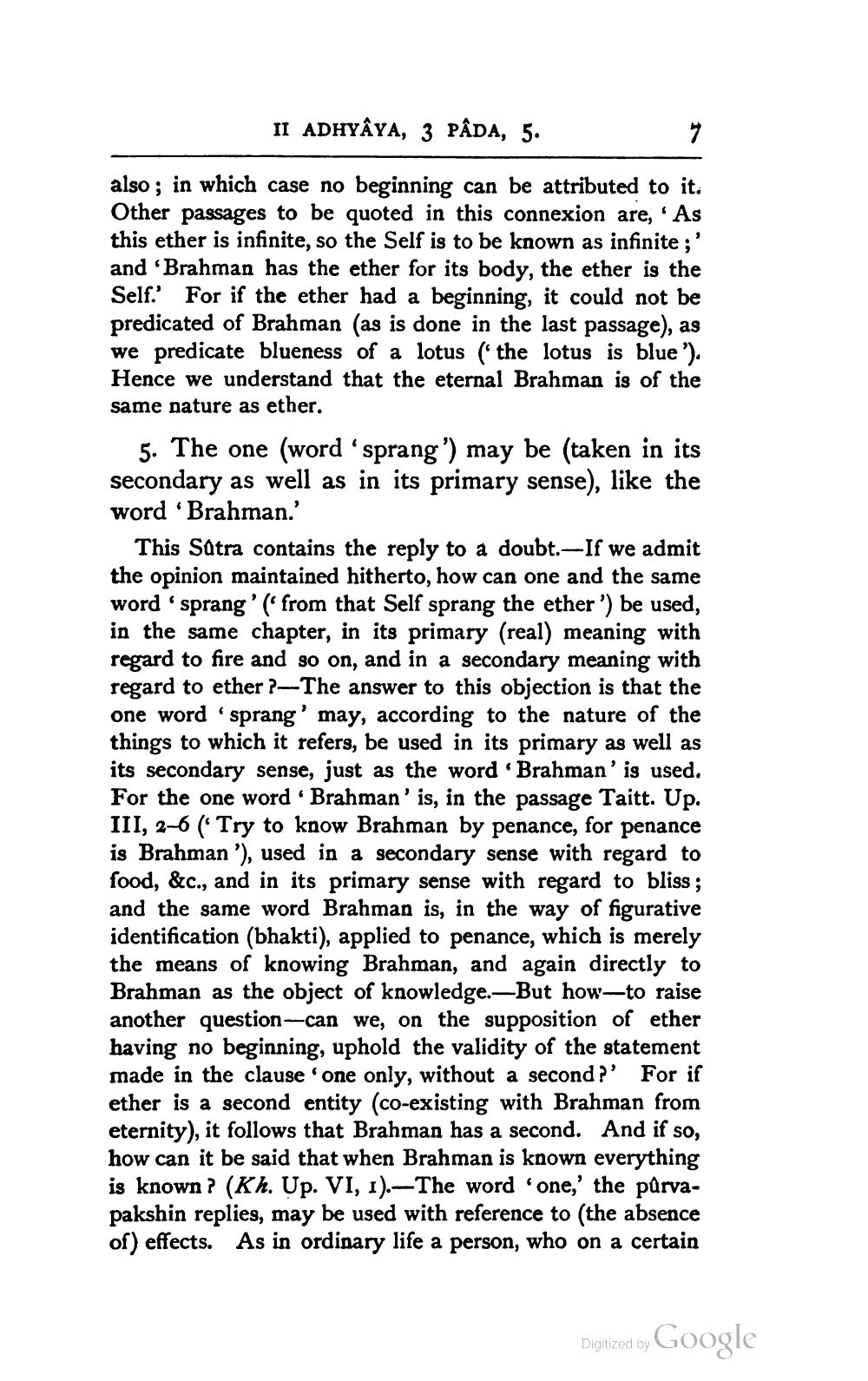________________
II ADHYAYA, 3 PÂDA, 5.
also; in which case no beginning can be attributed to it. Other passages to be quoted in this connexion are, 'As this ether is infinite, so the Self is to be known as infinite;' and 'Brahman has the ether for its body, the ether is the Self.' For if the ether had a beginning, it could not be predicated of Brahman (as is done in the last passage), as we predicate blueness of a lotus (the lotus is blue'). Hence we understand that the eternal Brahman is of the same nature as ether.
5. The one (word 'sprang') may be (taken in its secondary as well as in its primary sense), like the word 'Brahman.'
This Sutra contains the reply to a doubt.-If we admit the opinion maintained hitherto, how can one and the same word 'sprang' ('from that Self sprang the ether ') be used, in the same chapter, in its primary (real) meaning with regard to fire and so on, and in a secondary meaning with regard to ether?-The answer to this objection is that the one word 'sprang' may, according to the nature of the things to which it refers, be used in its primary as well as its secondary sense, just as the word 'Brahman' is used. For the one word Brahman' is, in the passage Taitt. Up. III, 2-6 (Try to know Brahman by penance, for penance is Brahman'), used in a secondary sense with regard to food, &c., and in its primary sense with regard to bliss: ; and the same word Brahman is, in the way of figurative identification (bhakti), applied to penance, which is merely the means of knowing Brahman, and again directly to Brahman as the object of knowledge.-But how-to raise another question-can we, on the supposition of ether having no beginning, uphold the validity of the statement made in the clause 'one only, without a second?' For if ether is a second entity (co-existing with Brahman from eternity), it follows that Brahman has a second. And if so, how can it be said that when Brahman is known everything is known? (Kh. Up. VI, 1).-The word 'one,' the pûrvapakshin replies, may be used with reference to (the absence of) effects. As in ordinary life a person, who on a certain
Digitized by Google




